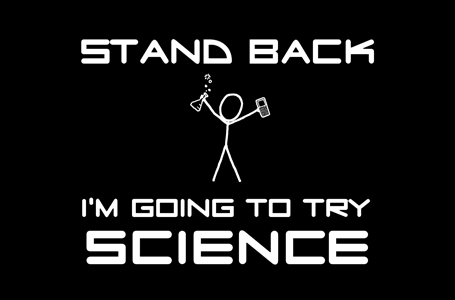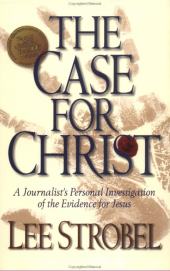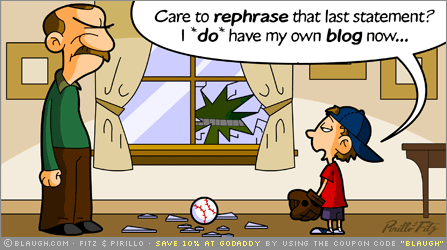You won’t believe what they’re slashing!
May 19, 2014 Leave a comment
And trust me, it’s not the budget I’m talking about. It’s the quality of the news reporting.
Generally I try to stay clear of political issues on this blog. It’s not what the blog is about, I’m not particularly partial to any one party, and I have readers here from around the world; Australian politics just won’t interest some of you.
So rest assured this post isn’t about favouring one political party over another. That’s not what Inquisitive Bliss is (generally) about. This post is about a poor excuse for a news story, and how people should go about reading between the lines to detect the bullshit.
This article in question can be found here:
Go have a quick read of it. I won’t be surprised if you’re initial reaction is “Gah! Terrible cuts!” Hell, when the first point is about cutting science, that’s my first reaction too. But let’s go through these one at a time. Put on your bullshit detectors people.
So. #1. Apparently some science funding is getting cut. Definitely not a good thing. Considering it’s the CSIRO I doubt they’ve been pissing money up against a wall, so this probably isn’t good. But we’re after the bullshit here, so where is it?
First off, nowhere does it say how much these institutions are still getting. For all we know they might be getting billions, so who gives a shit about ~$150million? Alternatively they might be only getting $20 once these cuts are made. I don’t know. With a bit of research I could probably find out, but that’s not the point I’m trying to get across here. This is a news report. News reports are supposed to be unbiased. Why haven’t these guys done that research? Why aren’t they giving us the full story?
Secondly, notice how the first figure says this cut will happen over 4 years? Why doesn’t it say how many years the ANSTO cut will go over? Maybe that’ll happen next year? Maybe it will happen over 50 years? Who knows? I’ll bet the reporter knows, so why isn’t he telling us?
#2. They got rid of a word. Poor fucking diddums. The only point of number 2 is to try and make the Government look like they don’t support clean energy alternatives. Which may be true. But take note of what this program actually does. It’s mean to help supplement Australians struggling to pay their energy bills. So the removal of this word may in fact mean they’re expanding the program to include more Australians. That…kinda sounds like it might be a good thing. Or maybe it really is just a ploy to reduce clean energy. Again, who knows? The article doesn’t make it clear.
#3. Get rid of those damn windfarms. Boy is that some emotive language. But…did anyone else notice how they’re not actually getting rid of any fucking windfarms!? What a load of crap. This heading is completely false. Yes, the program is getting the axe. Yes, that’s $1.3billion not going into that program anymore. Isn’t that enough to rid on, without having to blatantly lie?
#4. Not sure on this one. I’m not a big fan of PETA, but they’re actually axing the Animal Welfare Strategy program, which I’m assuming are two different groups. Some extra info would be nice, but at least I can smell any bullshit here.
#5. “The major schemes either axed or deferred for several years”. That’s okay, I didn’t want to know what those schemes were anyway. Just feed me the fear factor. I don’t need additional information to generate an informed opinion.
I mean really, what is actually being cut here? Maybe these were good cuts and help clean up a very messy set of systems? Maybe it’s streamlining several systems into one, thus finding ways of saving money. Or maybe they’re bad cuts and we’d be better off if they didn’t make them. Buggered if I know.
#6. So a certain amount of money has already been sunk into these programs (thanks for telling me just how much…NOT), and the leftover funds are being put somewhere else. So, does that mean these projects were successful and completed under budget? That’s awesome! Or is the Government just cutting whats left of the funding despite the programs not being finished? Again, no idea.
#7. What education are you talking about? Is this in schools? Primary or secondary? Somehow I doubt they’re closing all the universities that teach law. So what exactly are you talking about here? Don’t be specific or anything.
#8. Oh no, a whole program has been cut! Not a quarter, not even half a program, but a whole program! Come on, careers advice programs are a dime a dozen. There’s plenty more out there. Okay, maybe this was a really important program. One that was having a lot of success and getting parents back to work. Or…you know…maybe it wasn’t? Who knows!?
#9. I can understand why some people would be pissed about this one. Personally, until tobacco is actually made illegal I don’t have a problem with it. Why should the Government spend money on something we already know. Coz really, it’s kind of hard to miss the whole “smoking is bad for you” thing. Seriously, people living in caves know that.
I love this next section, which doesn’t actually have a number (I’m guessing the author couldn’t count past 9). Listen to this:
“If this isn’t enough for you, don’t worry. The Abbott government loves getting rid of laws.”
Oh boy, this sounds like it’s going to be terrible. So what are they doing? Are they cutting our freedom of speech? Reducing woman’s rights? Getting rid of that whole messy thing where gays can now have civil unions?
“So much so, it’s going to hold at least two ‘Repeal Days’ every year where they get rid of red tape.”
Oh my gawd!! That’s…that’s….wait, that’s pretty fucking good isn’t it?
“The first Repeal Day, held earlier this year, got rid of 50,000 pages of legislation. It’s all to “reduce regulatory compliance costs on businesses”.”
So, they’re essentially making it easier for businesses to conduct their business and do it cheaper. Hey, I own a business. Isn’t this a good thing?
Well, to be fair, who knows? They haven’t actually said what laws are being cut. To be fair, 50,000 might be a couple too many to list, but couldn’t they have at least picked one or two of the bad ones? You know, assuming there are bad ones.
Seriously, why is the author wording this like it’s the apocalypse? There’s nothing bad in here!
$200,000 to bring back Matthew Flinder’s original 1804 Chart of Australia. Can’t be sure, but that sounds like it might have some historic value. Somehow I doubt they’re wanting to use it to replace Google maps mate.
Hey, the ballet students are getting their own residence. That’s good right? You could be forgiven for thinking it wasn’t with the language being used here.
I didn’t actually know what the mushroom spawn levy was, so I Googled it and got this:
“The Australian Government introduces levies and export charges at the request of industry. These levies variously fund research and development, marketing, residue testing, plant and animal biosecurity programs and emergency responses for industry.”
I dunno, sounds kind of reasonable. Considering I have no idea what the current levy is, it’s hard to have an opinion on it. Damn, wouldn’t it have been useful if this article told you that…
The Lodge refurbishment is a bit of a tougher one. Considering it’s the PM’s home, I think a certain amount of privacy isn’t a bad thing. But, if this is coming out of our tax dollars, I’m afraid you kind of need to tell us. Sorry dude, if you’re spending my money I have a right to know where it’s going. So yeah, that’s a good one to call out.
Okay, so after more than 1,300 words, what’s the point of all this? No, the point isn’t that the Abbott Government is good. It’s not that I’m a secret bleeding heart Liberal. I’m a swing voter and I think any government can be corrupted and that all governments get some things wrong and some things right. This isn’t a post about taking sides in a political war.
The point is that far too many ‘news’ stories have an agenda, and that if you’re not careful you’ll be taken along for a ride. Everything in this article might be right and every single one of these points might be valid. The point is that as an average reader without a lot more insight into the political spectrum, you have absolutely no idea.
Please, don’t be taken for a ride. It’s perfectly all right if you have a strong political opinion. Frankly I wish more people would take a stronger interest in politics. Then we could hold authors like this to account and let them know we expect more from our news publications. But don’t have a strong opinion based on bullshit like this. Learn to read between the lines and know when an agenda is being set.
Ignorance is not bliss. Stay inquisitive.

 Fortunately, reading Carl Sagan’s ‘The Demon Haunted World’ has not only helped inspire me, it helped with quite a bit of the research I needed to do, compiling a lot of it all in the one place.
Fortunately, reading Carl Sagan’s ‘The Demon Haunted World’ has not only helped inspire me, it helped with quite a bit of the research I needed to do, compiling a lot of it all in the one place.
 ‘The case for Christ posts’ are all in relation to a particular book by Lee Strobel, oddly enough entitled ‘The case for Christ’. It’s not often one has the opportunity to read such a well written piece of propaganda. These posts are intended to break down the book chapter by chapter and explain what is wrong either logically or factually in each. By the end of it hopefully readers will be more aware of what to look out for in biased writings.
‘The case for Christ posts’ are all in relation to a particular book by Lee Strobel, oddly enough entitled ‘The case for Christ’. It’s not often one has the opportunity to read such a well written piece of propaganda. These posts are intended to break down the book chapter by chapter and explain what is wrong either logically or factually in each. By the end of it hopefully readers will be more aware of what to look out for in biased writings.
 Finally I plucked up the nerve to take a look through ‘The case for Christ’ and after only reading a few chapters came to a powerful realisation. This book is just so terrible that I can’t read it cover to cover and then write a blog post about it. It is riddled with so much bad logic, exaggerations, stretching of evidence, wishful thinking and on occasion, outright lies that the only way to truly give a good representation of this book is to read it chapter by chapter and give a report as I go.
Finally I plucked up the nerve to take a look through ‘The case for Christ’ and after only reading a few chapters came to a powerful realisation. This book is just so terrible that I can’t read it cover to cover and then write a blog post about it. It is riddled with so much bad logic, exaggerations, stretching of evidence, wishful thinking and on occasion, outright lies that the only way to truly give a good representation of this book is to read it chapter by chapter and give a report as I go. Strobel admits up front he was convinced of the boys guilt. But that’s not because the case was truly open and closed. It’s because he’s just not very good at accounting for all the evidence, and can easily be lead astray by the pressure of others (the police in this case). Strobel demonstrates this in the next few paragraphs when he talks about his previous atheism.
Strobel admits up front he was convinced of the boys guilt. But that’s not because the case was truly open and closed. It’s because he’s just not very good at accounting for all the evidence, and can easily be lead astray by the pressure of others (the police in this case). Strobel demonstrates this in the next few paragraphs when he talks about his previous atheism.










 The Cosmological argument is one often put forward by the religious as logical proof of the existence of God. For anyone unfamiliar with the argument I’d suggest taking a quick look over the Wikipedia article of the topic:
The Cosmological argument is one often put forward by the religious as logical proof of the existence of God. For anyone unfamiliar with the argument I’d suggest taking a quick look over the Wikipedia article of the topic:
 This is the point where we need to return to subjects like
This is the point where we need to return to subjects like  Elusive little bastard isn’t it? But maybe that’s not terribly surprising when you consider the different meanings being ‘happy’ has had over the last three thousand years or so. The ancient Greeks apparently defined it as ‘luck’. Something that the Gods bestowed upon you and you really had no say in the matter. Over time this has changed many, many times until we get to todays meaning of happiness, whereby not only can everybody be happy, but if you’re not there must be something wrong you with.
Elusive little bastard isn’t it? But maybe that’s not terribly surprising when you consider the different meanings being ‘happy’ has had over the last three thousand years or so. The ancient Greeks apparently defined it as ‘luck’. Something that the Gods bestowed upon you and you really had no say in the matter. Over time this has changed many, many times until we get to todays meaning of happiness, whereby not only can everybody be happy, but if you’re not there must be something wrong you with.